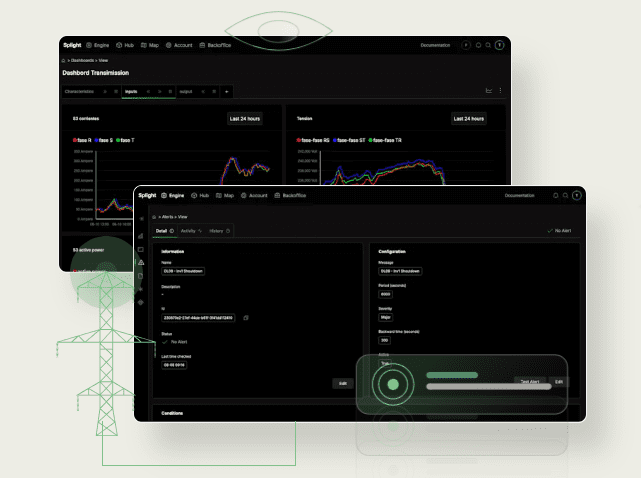- Splight AI Inc. has raised $12 million in seed funding to advance its clean energy mission.
- Funding round led by Noa, with participation from Elewit, EDP Ventures, Draper Cygnus, Draper B1, Ascent Energy Ventures, Fen Ventures, Reaction Global, Barn Investments, and the UC Berkeley Foundation.
- The startup aims to tackle grid congestion and improve transmission capacity using AI technology.
- Grid congestion results in up to 40% of renewable energy being wasted due to outdated management practices.
- Splight’s AI-powered platform utilizes inverter-based resources (IBRs) to manage congestion and accelerate integration of distributed energy sources.
- The platform is claimed to potentially double transmission capacity and facilitate the injection of terawatts of clean energy into the grid.
- CEO Fernando Llaver highlighted the rapid deployment capability of their technology.
- Funds will be used to expand into North America and the EU, accelerate technology development, and grow the leadership team.
- Investor Kia Nejad emphasized the technology’s practicality in modernizing the energy grid.
Main AI News:
Splight AI Inc., a trailblazer in grid operations, has successfully completed a $12 million seed funding round aimed at advancing its mission to enhance global access to clean energy. This round, spearheaded by Noa (formerly A/O), saw participation from notable venture capital firms including Elewit, EDP Ventures, Draper Cygnus, Draper B1, Ascent Energy Ventures, Fen Ventures, Reaction Global, Barn Investments, and the UC Berkeley Foundation.
The startup is set to transform electrical grid operations by addressing the issue of grid congestion, which refers to the inadequate transmission capacity often resulting from outdated management practices. This congestion leads to the wastage of up to 40% of renewable energy generation, as excess capacity remains untapped and renewable energy sources are unable to connect to the grid.
In response to the growing global emphasis on sustainability, Splight aims to enhance grid efficiency to maximize the use of clean energy sources. With the increasing importance of distributed energy resources like batteries and rooftop solar, energy providers face significant challenges in managing these assets. Splight’s AI-powered grid operations management platform is designed to address these challenges by leveraging inverter-based resources (IBRs) to alleviate grid congestion and expedite the integration of distributed energy sources.
The company claims that its platform can potentially double transmission capacity by employing AI algorithms to manage congestion, facilitating the injection of terawatts of clean energy into the grid while enhancing reliability. This advancement not only mitigates energy wastage but also accelerates the connection of new distributed energy sources and batteries.
Fernando Llaver, CEO of Splight, highlighted the significance of the funding round, describing it as a strong endorsement of the startup’s “proven and commercially viable” AI platform. “Our technology can be deployed swiftly, enabling the integration of over 3,000 gigawatts of clean energy within months,” Llaver noted.
The funds from this round will be directed towards expanding Splight’s platform into North America and the European Union, advancing technology development, and expanding the leadership team. Kia Nejad, an investor at Noa, emphasized the critical need for solutions to energy curtailment, stating, “Splight’s technology offers a practical approach to modernizing the energy grid to meet contemporary demands.”
Conclusion:
Splight’s recent funding and technological advancements signal a significant shift in how grid operations are managed. By leveraging AI to address grid congestion, the company is positioned to enhance the efficiency of renewable energy integration. This development underscores the growing importance of innovative solutions in managing the increasing complexity of energy grids, especially as distributed energy resources become more prevalent. The market can expect a heightened focus on technologies that optimize grid performance and reduce energy waste, paving the way for more sustainable and reliable energy systems.

